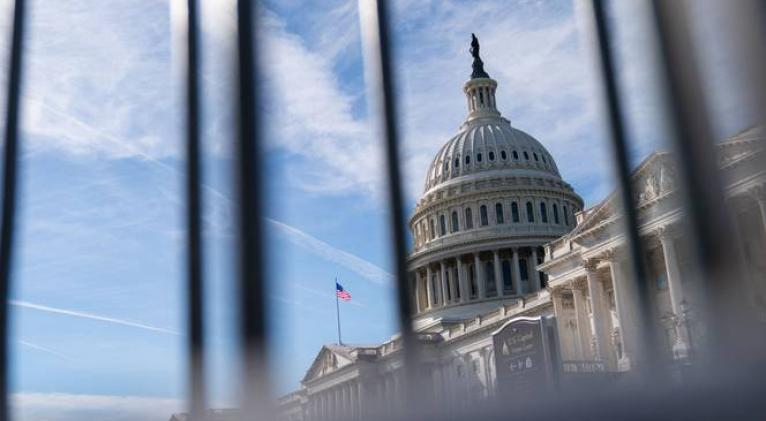US democracy has always been a fragile experiment. Its biggest test awaits
especiales

Regardless of the outcome of the 2024 United States presidential election, the experiment of American democracy is in jeopardy. The challenges go beyond this election or the choice of personalities who may get elected.
The US Constitution's first three words are "We the people."
They reflected a lot of promise and hope in 1787, when America's constitutional framers first drafted the document. At the time of the drafting, no country in the world was a democracy.
They were all kingdoms, monarchies, or other forms of government where certainly the people did not rule. As American historian James McGregor Burns said, America was an experiment, an experiment in popular rule.
Moreover, as Benjamin Franklin exited Constitutional Hall in Philadelphia, he was asked what kind of country the framers had created, and he allegedly yelled back "A republic, if you can keep it."
But at the same time, John Jay, one of the principal founders of America, said that "The people who own the country ought to govern it." Franklin versus Jay capture the duality of American democracy.
Who are 'the people?'
"We the People" from the Constitution was not inclusive.
The framers were slave holders, merchants, and land barons. They hardly represented the people. The document they produced allowed for slavery, treating them as three-fifths of a person.
Women were second-class citizens with few rights. There was no right to vote. The Electoral College picked the president of the United States.
Yet, as former Supreme Court Justice Thurgood Marshall said, our flawed democracy improved over time. It took 27 constitutional amendments, a civil war, and a civil rights movement, for the promise of "We the people" to become more inclusive, but still not fulfilled.
End of international consensus
There is much to admire in American democracy. There is enormous prosperity and personal freedom for most, and a sense of opportunity that draws immigrants from around the world. For more than 80 years it has been the American century, as journalist Henry Luce once called it.
The US has been the beacon of democracy across the world. Throughout the Cold War and into the present, it was the leader of freedom and the guarantor of a rules-based international order.
,,
The US may no longer be the dominant power it was, and some even see it in decline, or at least facing serious challenges.
After the fall of the Berlin Wall in 1989 and the breakup of the USSR in 1991, the US became, at least temporarily, the sole surviving superpower. But now, more than 30 years later, the world is vastly different.
The US may no longer be the dominant power it was, and some even see it in decline, or at least facing serious challenges.
Thus for some, the international environment challenges American democracy, with the end of the Cold War tearing apart the political consensus that held the US together for decades.
Upcoming test
For some, the flaws of American democracy are personal, seeing its prospects as hanging in the balance, depending on whether former president Donald Trump or Vice President Kamala Harris is elected this year.
Yet it is more than about personality. The challenges of American democracy are enormous, and they predate individuals such as Donald Trump.

AP
Protesters hold signs during a rally against Michigan's coronavirus stay-at-home order at the State Capitol in Lansing, Michigan on May 14, 2020. (AP Photo/Paul Sancya).
While American history is a story of the gradual expansion of the right to vote, there has also been a countertrend seeking to disenfranchise individuals.
Universal franchise, a hallmark of democracy, does not appear to be widely accepted in the United States, and there is a huge partisan divide over who should vote.
We are the only democratic country in the world where there is no constitutional right to vote and there is no direct election by the people for their president.
Private money distorts the political process of the United States. We live in a politically polarised world where polls suggest broad disagreement on many issues.
America today suffers through the greatest gap in wealth and income between the rich and poor than we ever have had in American history. The murder of George Floyd, a Black man at the hands of a White police officer, just a few kilometres from where I live, points to the divide over race.
A fight over reproductive rights, points to the division between men and women in our society.
We live in two worlds, separate and unequal. As Abraham Lincoln once said, "A house divided against itself cannot stand."
That seems to be the place where we are in 2024.

AP
A first printing of the United States Constitution is displayed at Sotheby's auction house during a press preview on Nov. 5, 2021, in New York (AP Photo/Mary Altaffer).
The United States has the oldest constitution in the world, written during the 18th-century, horse and buggy era, and it's trying to apply it to the 21st-century world of computers and artificial intelligence.
This governing document may no longer be adequate to address the problems that the US faces today. As the US falters, so does democracy across the world.
Freedom House notes that after significant expansion of democracy from the 1970s to roughly the year 2000, the American experiment is now in global retreat. Democracy is part of the global experiment. If it fails in the US, it will fail globally.
Much work needs to be done to fix what ails the US. Whether the outcome of the 2024 election can tackle that is yet to be seen.














Add new comment